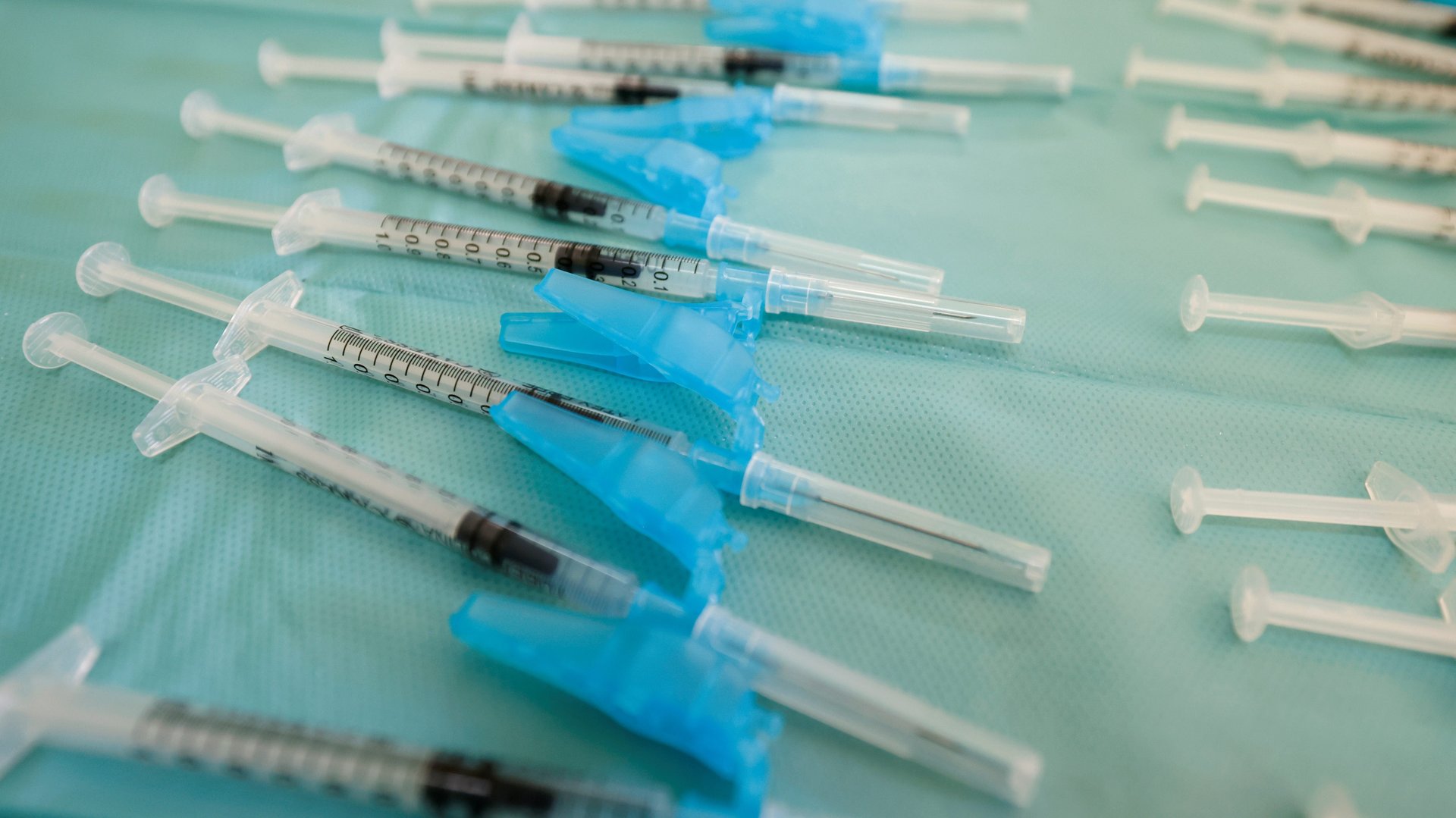A syringe shortage may hamper Africa’s covid-19 vaccination efforts
A looming scarcity of syringes may set back Africa’s already delayed covid-19 vaccination drive, the World Health Organization (WHO) has said.


A looming scarcity of syringes may set back Africa’s already delayed covid-19 vaccination drive, the World Health Organization (WHO) has said.
Most African countries are currently receiving vaccines together with syringes, but this model is not sustainable considering the high number of vaccines that the continent is expecting for the rest of this year and in early 2022, says Phionah Atuhebwe, vaccines introduction medical officer for Africa at World Health Organization.
“Without a plan, we shall really be in big trouble,” she said at a press briefing yesterday (Oct. 28).
Africa’s vaccination push has been hampered by challenges
Africa has been struggling to vaccinate its populations due to delays, an underperforming Covax vaccine sharing program, and the hoarding of vaccines by rich countries. Only 15 African countries, or less than a third, achieved the global goal of vaccinating 10% of their populations against the disease by the end of September.
The continent has recorded 8.5 million covid-19 cases and fully vaccinated only 5.58% of its population of more than 1 billion people.
But vaccine deliveries to the continent are speeding up. In a recent boost, Moderna said on Oct. 26 it will sell up to 110 million doses to African countries, with the first 15 million being delivered by the end of this year.
The vaccination drive is however threatened by an expected syringe shortage. The United Nations Children’s Fund (Unicef) has projected that there could be a shortfall of up to 2.2 billion auto-disable syringes globally in 2022 due to increased demand, supply chain disruptions, and “syringe nationalism.” The shortage, Unicef said, would only hit the type of syringes that lock automatically to prevent reuse, as required by WHO and Unicef guidelines. These syringes are used in low- and middle-income countries, which will be most affected from the shortage, it adds.
Africa gets most of its syringes from Asia and Europe, the WHO’s Atuhebwe said. Three African countries—Nigeria, Zambia and Tanzania—manufacture syringes but these are for veterinary and other medical uses, she added.
Matshidiso Moeti, the WHO’s regional director for Africa, urged countries and companies manufacturing essentials like syringes to “take a holistic view of the end-to-end process so the countries receiving doses are enabled and empowered to plan their rollouts effectively and to proactively address bottlenecks.”
Sign up to the Quartz Africa Weekly Brief here for news and analysis on African business, tech, and innovation in your inbox.